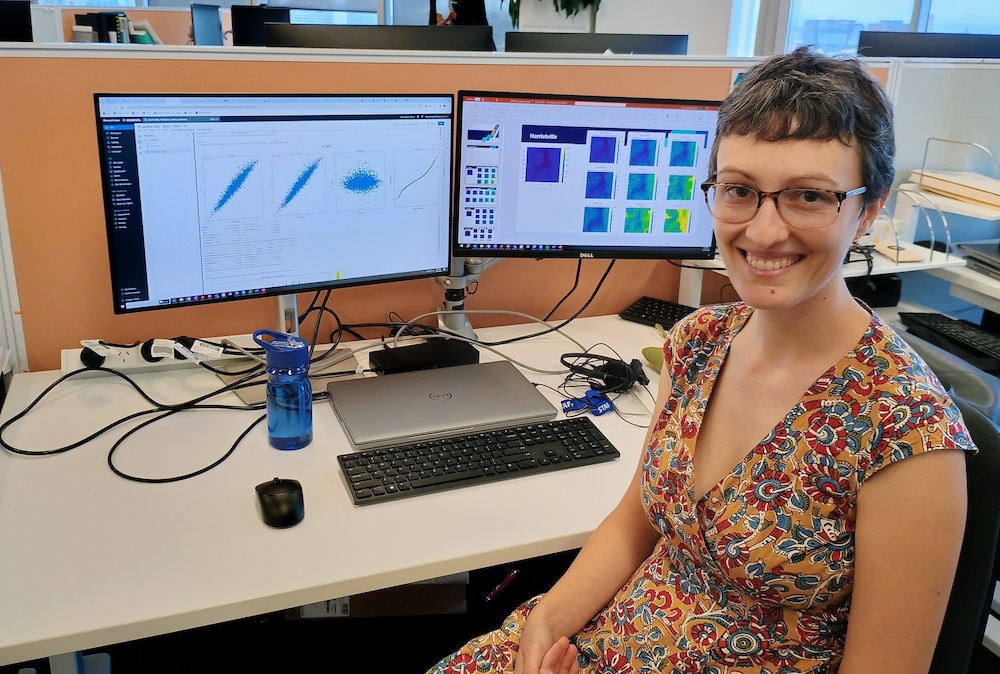International Day of Women and Girls in Science is the perfect time to celebrate the many female scientists who contribute to the important work done across Forest Fire Management Victoria (FFMVic) to keep communities safer from fire and other natural disasters.
Dr Elena Tartaglia’s fascination for science and appreciation of its usefulness from an early age has meant that science and technology have been a strong trend in her career.
‘My mum is a scientist and librarian, and my dad is a mechanical engineer,’ Elena said.
‘They fostered my interest in science.
At school, my strengths were maths and languages. It was suggested that science and maths skills would be useful in the workforce, so I studied those.
I love maths because it is a way to understand the real world. It allows you to find connections between different problems and see similarities in solving problems across different areas.’

Creating data-driven models improves decision-making
Elena really enjoys the work she does within the Data Analytics and Information Systems (DAIS) team.
‘I like that my work involves developing data-driven models to improve decision-making and practices in bushfire management,’ Elena said.
‘I do this by writing code to analyse and visualise data collected by the Department of Energy, Environment and Climate Action (DEECA), the Country Fire Authority (CFA) and the Bureau of Meteorology.
I then decide what sort of model will best represent the data and evaluate how well the model is performing.’
Elena considers science to be about continual improvement and making decisions based on observations of the real world or experiments.
‘By collecting and understanding data, we can understand the world better and use that to make better decisions.
This is the core of my work. I take data and fit models to it so we can better understand what actions to take in the future.’
Skills learnt at uni still used
Elena still uses the technical skills she learnt during high school and university.
‘Understanding the meaning behind equations, computer programming, and thinking through a problem logically and rigorously are all skills I learnt at university that I now regularly put into practice to solve a research problem,’ Elena said.
She encourages girls thinking of studying any science, technology, engineering, and mathematics (STEM) subjects at school to focus on understanding concepts and statistics.
‘Understanding concepts and developing your scientific reasoning is a valuable skill to have when you are in the workforce, no matter what field you work in,’ Elena said.
‘As for statistics, it is at the root of science.
It’s the study of how we measure things and consider the uncertainty that comes with the real world being messy and measurements being imperfect.
Getting a good understanding of the concepts behind statistics is a useful skill to have.’
You can read other profiles of FFMVic female scientists on Our People, Their Stories.
Footnote: While in her previous role at the CSIRO, Elena was part of a team of scientists from CSIRO, DEECA and CFA who developed initial attack models to predict the likelihood of initial attack success in various vegetation types. The models used data collected from over 17 years of Victorian fire incidents, geographical data, and weather observations.
This work is being continued in Elena’s current role at DEECA to inform decisions in bushfire preparedness. The resulting research was published in the International Journal of Wildland Fire.